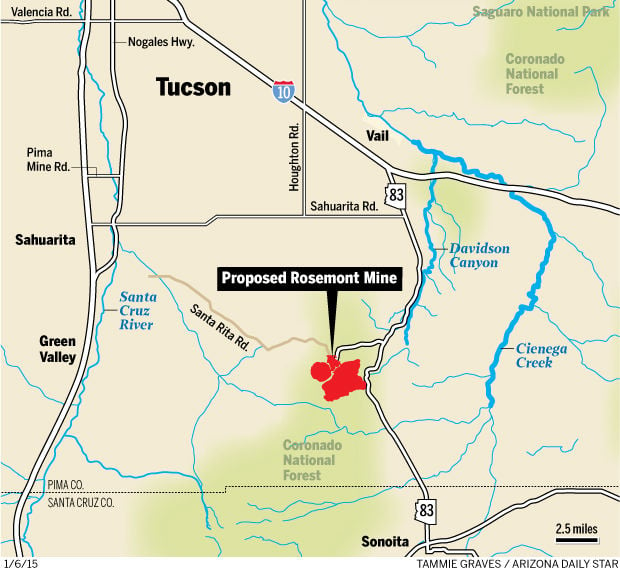The Environmental Protection Agency won’t release memos and other documents to another federal agency on the latest Rosemont Mine mitigation plan and on the mine’s general impacts.
It’s citing a federal Freedom of Information Act (FOIA) exemption, to protect what it calls the integrity of the deliberative process. But the University of Arizona’s journalism school chief, David Cuillier, says the agency’s action raises questions about what it’s trying to hide.
The EPA has written several letters to the Army Corps of Engineers in the past, criticizing Rosemont’s application to dredge and fill washes under a federal Clean Water Act permit. In a widely circulated November 2013 letter, the EPA urged the Corps to reject the application and criticized an earlier version of Rosemont’s mitigation plan as inadequate.
On the mining company’s current mitigation plan, however, the EPA has only released consultants’ critique of one element: a proposal to construct channels near the existing Sonoita Creek to accommodate floodwater and create more habitat.
It sent the Corps a separate, technical memo in April 2015 commenting on the broader mitigation plan. But it withheld that comment under an exemption to FOIA protecting correspondence between agencies. In December 2015, the EPA sent the Corps three other documents on the mine’s impacts, marked “draft” and withheld under the same exemption.
These actions are consistent with a recent statement by outgoing EPA Regional Administrator Jared Blumenfeld that the agency doesn’t want to prejudge the issue before reviewing the most recent documents, such as the mine’s final biological opinion.
In withholding the 2015 memo on the mitigation plan, EPA is asserting “the deliberative process privilege, the general purpose of which is to ‘prevent injury to the quality of agency decisions,’” agency spokeswoman Margot Perez Sullivan said in an email. “The privilege protects not merely documents, but the integrity of the deliberative process itself,” Perez Sullivan said.
But UA’s Cuillier said that while people can understand that inter-agency discussions can be more open and productive if officials know the comments won’t be made public, agencies should be open “when communications start reaching a certain amount of finality that the public deserves to know about.”
“If the EPA has made some final determination in how they view this particular project, then it seems that they should be open about that,” said Cuillier, a board member of the National Freedom of Information Coalition and the First Amendment Coalition of Arizona.
“The public deserves to know how they come down on the issue. To hang secrecy on this technical loophole betrays the intent of FOIA,” he said.





